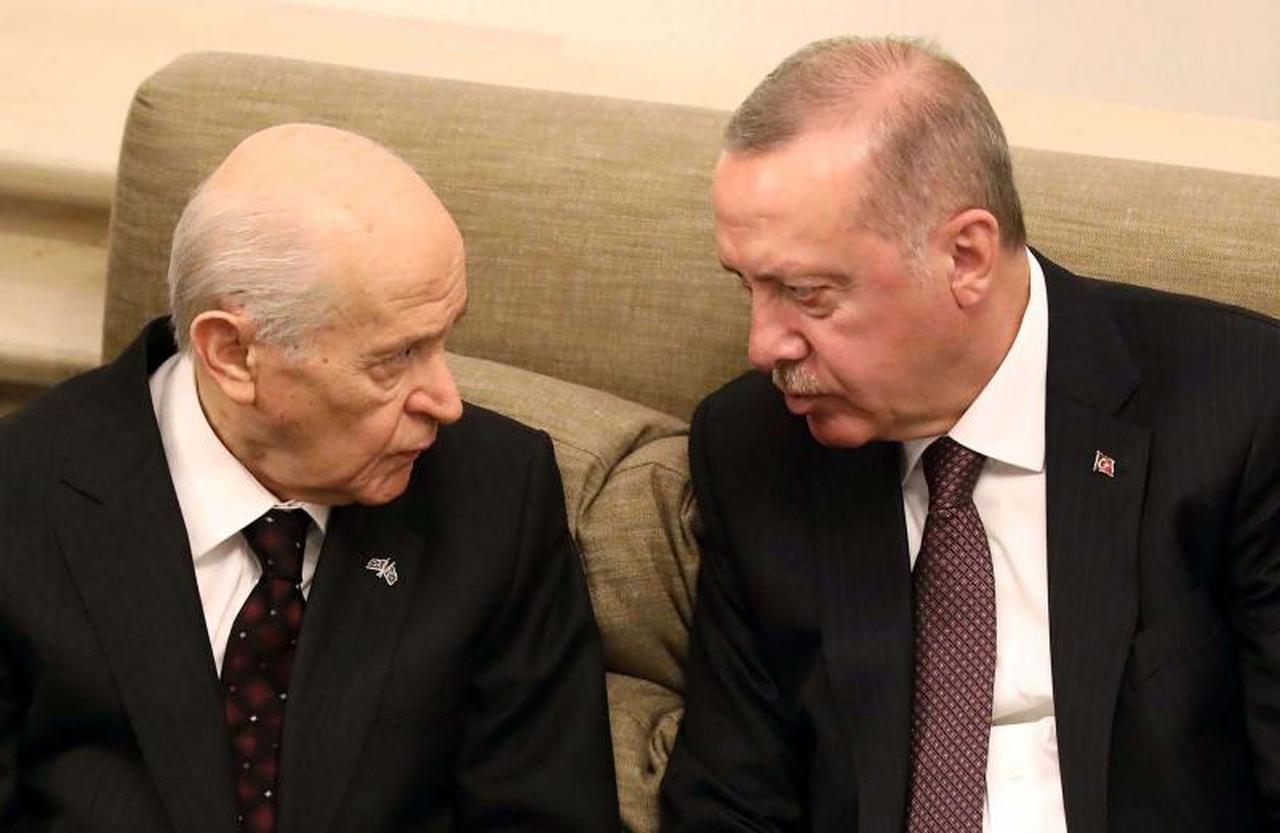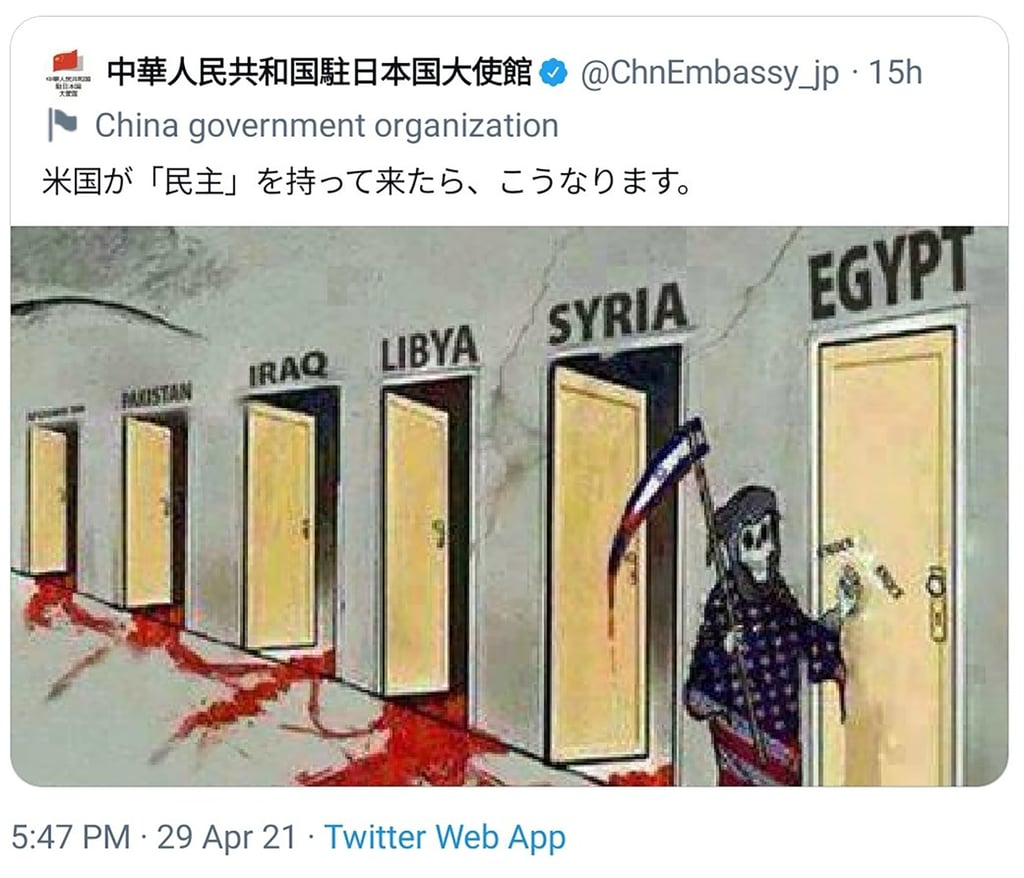
On Tuesday, June 17, Devlet Bahçeli—the leader of Türkiye’s Nationalist Movement Party (MHP) and a key government partner—declared that “Israel’s objective is to encircle the Anatolian geography,” warning that Türkiye is the “final target.”
This projection is nothing new. It echoes a long-standing belief frequently voiced by former Prime Minister Necmettin Erbakan, the ideological mentor of President Recep Tayyip Erdoğan. His son, Fatih Erbakan—now a political figure in his own right—has revived the claim yesterday, reiterating it in response to Israel’s recent military actions.
The theory gained further traction after a clip from Israeli television went viral, in which a commentator claimed Israel would “ultimately face Türkiye.” The video circulated widely not only in Türkiye, but also in parts of the Arab world, feeding into a broader narrative of regional endgame scenarios.
But the fear is not rooted in a single broadcast. Following Israel’s lethal strikes on Iranian targets, a long-standing Turkish reaction resurfaced across political lines: “After Iran, Türkiye is next.” The belief, widely held across the ideological spectrum, stems from the idea that Western powers are systematically targeting independent or anti-Israel regimes—and that Türkiye could eventually face similar destabilizing efforts.
Even former Portuguese Minister for European Affairs Bruno Maçães sounded the alarm for Türkiye, and now the country's experts are similarly uneasy. In moments like these, the responses often transcend ideological lines—nationalists, conservatives, and segments of the opposition begin to echo one another in tone and concern.
Security analysts and journalists have revived the narrative of "Türkiye next," interpreting Israel’s latest moves as the opening phase of Iran’s collapse—an outcome that, they warn, could pave the way for Türkiye to be weakened next.

The fear of targeted regime change is not without precedent in Turkish political memory. A sequence of foreign interventions—including the U.S.-led invasion of Iraq in 2003, the assassination of Libya’s Muammar Gaddafi, the eruption of Syria’s civil war in 2011, the military coup against Egypt’s Mohamed Morsi in 2013, and sustained sanctions against Iran—has built a sense in Türkiye that it sits next in line.
This chain of events has cultivated what many call a “strategic siege mentality”: a belief that all governments in the Muslim world that challenge Western or Israeli interests are methodically dismantled.
In Türkiye, those theories often draw strength from state-linked or intelligence-centered rhetoric. From televised dramas to panel discussions featuring self-styled experts, the narrative that “the West wants to divide and weaken Türkiye” has gained significant traction.
Regardless of political leaning—Islamist, nationalist, or secular—there is widespread belief that countries confronting Israeli policy often meet engineered instability.
Pop culture contributes to this notion, dramatizing covert operations and reinforcing the perception that Türkiye is under constant external threat.

Within Türkiye, the reverberations of the Israeli-Iranian confrontation have reignited old ideological battle lines—each political camp interpreting the moment through its own prism of fear, identity, and geopolitical outlook.
Among the pro-Iranian sentiment of Türkiye, particularly those with deep skepticism toward NATO, the view is stark: Iran represents the last major regional bulwark against what they perceive as an aggressive, Western-led order. In their narrative, Tehran’s collapse would not only eliminate a strategic counterweight to Israel and the United States but also leave Türkiye exposed and isolated. To them, Iran’s downfall is not just the end of a regime—it is a signal flare marking the beginning of Türkiye’s turn.
Islamist and government-aligned voices, including figures close to the ruling Justice and Development Party (AKP), approach the crisis from the opposite direction. While still deeply wary of Western intentions, they insist that Türkiye has already broken the cycle of externally imposed instability. Through its assertive foreign policy, economic resilience, and refusal to submit to Western diktats, they argue, Türkiye has flipped the regional script. In this view, Ankara now stands as the last sovereign actor unshackled from Western control—a fortress holding firm while others crumble.
Secular and nationalist factions, meanwhile, have turned back to a familiar reference: the “Greater Middle East Project” (Büyük Ortadoğu Projesi). Long a staple of Turkish political suspicion, the GMEP is seen by many as a blueprint for dismantling regional states through a blend of democratic pretext and geopolitical engineering. Recent military escalations are, to this bloc, less about nuclear nonproliferation and more about completing a broader transformation agenda—one that reshapes the region in line with U.S. and Israeli strategic priorities. For them, Iran is not an exception, but the next domino in a long series.
Though these camps differ sharply in their political loyalties and foreign policy visions, they converge on one critical assumption: what happens to Iran will not stay in Iran.
The GMEP, first reported in 2004 by the London-based Arabic newspaper Al-Hayat, outlined a U.S.-backed reform agenda aimed at democratizing Middle Eastern and Muslim-majority states—including Türkiye, Iran, and Pakistan. Championed by the Bush administration and circulated among G8 officials, the initiative emphasized governance reform and civil society development.
However, in the Turkish context, the project has been widely interpreted not as a benign reform blueprint but as a thinly veiled strategy for controlled collapse. The goal, many Turks believe, is to leave regional states weakened or failed, clearing a path for Israel’s unchallenged regional ascendancy.
Ironically, then-Prime Minister Recep Tayyip Erdogan described himself as a “co-chair” of the initiative more than one time, a remark that has since haunted him. At the time, secular and left-wing factions labeled him a domestic agent of American imperialism. Today, many of those same conservatives who once celebrated Türkiye as a “model Muslim democracy” now vote for the ruling coalition on the grounds that it resists foreign-imposed transformation.
https://x.com/DropSiteNews/status/1935095736754159696
While Western leaders continue to emphasize preventing Iran from obtaining nuclear weapons, many in the region believe the conflict has outgrown that narrative. The strategic objective, they argue, is no longer just about uranium enrichment; it’s about regional dominance and long-term power balance.
If Israel succeeds in bringing down the Islamic Republic, the consequences could be more destabilizing than many anticipate. The disintegration of Iran as a unitary state—triggered by ethnic fault lines, separatist currents, and economic collapse—could unfold rapidly.
Since 1979, no Western power has demonstrated the political will to push Iran to such a breaking point. But now, with Israel possibly leading that effort, a profound regional shift is in motion.
The core question facing Western policymakers is not whether Iran should be restrained, but whether they are prepared for the consequences of regime collapse. A post-Islamic Republic Iran would not resemble post-war Germany or Iraq—it could become a fragmented, volatile zone with cascading effects across its borders. And that is where Türkiye’s concerns take root.
For many Turks, the theory that “Iran is today, Türkiye is tomorrow” is not just paranoia—it’s a projection shaped by history, geography, and a distrust of great-power intentions.
Whether grounded in fact or myth, this belief remains a potent force in Turkish public opinion, shaping how millions interpret foreign interventions, regional wars, and their own country’s future on the geopolitical arena.
For Türkiye, the burdens of the war sparked by Israel could be heavy—starting with managing a potential influx of refugees and extending far beyond.